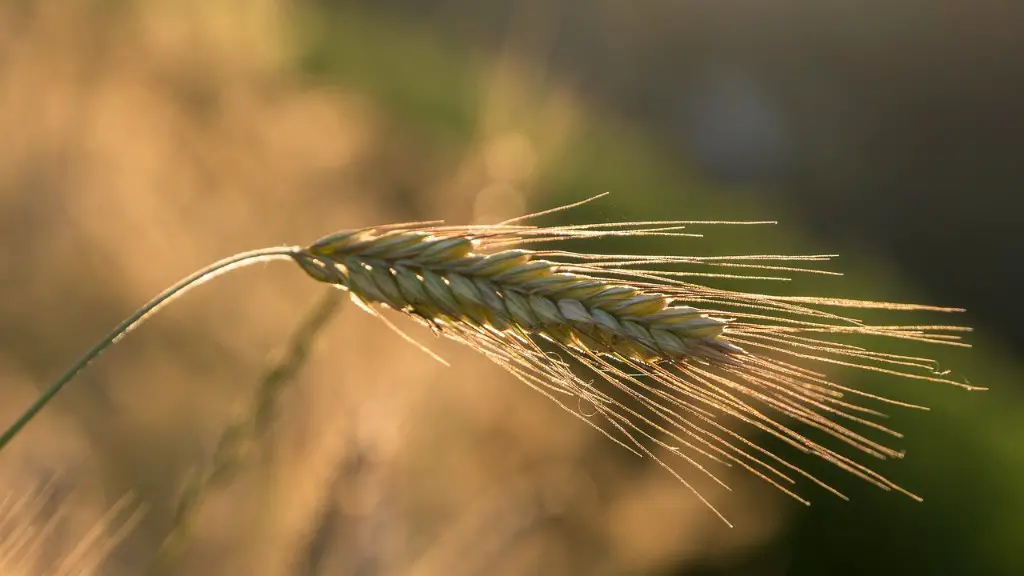Nematodes are tiny, microscopic worms that live in the soil. There are many different types of nematodes, but the ones that are most problematic for farmers are plant-parasitic nematodes. These nematodes invade plant roots, causing the plants to become stunted and produce less fruit or vegetables. In severe cases, the plant may die.
Nematodes are growing concerns for agriculturalists as these pests can cause extensive damage to crops. There are different species of nematodes, each with their own unique preferences and behaviours. However, all nematodes are small, thread-like worms that typically feed on plant roots. This feeding can stunt the growth of the plant, and in some cases, even kill the plant.
What is the meaning of nematodes in agriculture?
Nematodes are common soil pests that can affect plants. The aboveground symptoms of disease caused by nematodes can be difficult to detect, and may often be confused with symptoms of nutrient deficiency. Typically, plants affected by nematodes do not thrive, are paler than normal, and may wilt in the heat of the day.
Nematodes are small, worm-like creatures that can be found in a variety of environments, including soil, fresh water, and salt water. There are many different species of nematodes, some of which feed on fungi, bacteria, protozoans, other nematodes, and plants. Others can parasitize insects, humans, and animals.
Can nematodes harm humans
Nematodes are a type of parasitic worm that can infect humans. However, the bacteria that they carry cannot live independently and cannot infect humans. Nematodes are also safe for animals and plants. Human-parasitizing nematodes are not used for insect-control.
It is estimated that there are over 80,000 species of nematodes, the vast majority of which are completely harmless. Many even play an essential role in the environment, such as free-living nematodes that make nutrients available for plants. However, harmful nematodes like hookworm are downright destructive. Hookworm infection is a serious health problem in many parts of the world, causing anemia and malnutrition. In fact, it is estimated that hookworm infection affects over 700 million people worldwide.
What kills nematodes in soil?
Soil solarization is a method of using the sun’s heat to kill pests and diseases in the soil. This method can be used to kill nematodes in the soil. To solarize soil, the soil must be moistened and then covered with a clear plastic sheet. The clear plastic sheet must be sealed around the edges to create an airtight seal. The soil must be heated to a temperature of 140°F for a period of time to kill the nematodes.
When humans eat raw or undercooked infected fish or squid, they ingest nematode larvae. Once inside the human body, the larvae can invade the gastrointestinal tract. Eventually, the parasite dies and produces an inflamed mass in the esophagus, stomach, or intestine.
What eats a nematode?
Nematodes are small, worm-like creatures that are found in a variety of habitats all over the world. Although they are often thought of as pests, they play an important role in the ecosystem by serving as food for other animals.
One of the most common predators of nematodes are smaller arthropods, such as diplurans, beetle and fly larvae, tardigrades, centipedes, symphylans, and mites. Symphylans and mites are particularly important in grassland ecosystems, where they help to control the population of nematodes. By preying on nematodes, these animals help to keep the ecosystem in balance.
Nematodes are one of the most common soil-borne pests and can cause significant damage to crops. They are especially problematic in warm, humid climates. Symptoms of nematode damage include stunting, yellowing of plant leaves, and loss of plant vitality. Plant roots may be weakened or destroyed, impairing the plant’s ability to take up water and nutrients. Damage from nematodes can reduce yields and quality, and make crops more vulnerable to other soil-borne pests and diseases.
Can nematodes for plants infect humans
Humans can also be invaded by nematodes, just as Placentonema can. The good news is that these nematodes are much smaller than Placentonema. The bad news is that these invaders can cause serious diseases. The nematode Wuchereria bancrofti, for example, affects over 100 million people throughout tropical parts of the world.
Nematodes are small, squiggly worms. They are often confused with other things, but they are not earthworms or even closely related. Nematodes flourish in all kinds of dirt. They are the underdog of worms.
Can nematodes enter through skin?
Approximately 800 million people worldwide are infected with one or more species of skin-penetrating nematodes.These parasites persist in the environment as developmentally arrested third-stage infective larvae (iL3s) that navigate toward host-emitted cues, contact host skin, and penetrate the skin.
Nematodes are small, soil-dwelling creatures that are related to worms. They are often called “roundworms” because of their cylindrical shape. Nematodes live in all types of soils and travel in water-filled film coats. Although most nematodes are harmless to humans, some species can cause serious diseases in plants and animals.
Nematodes are very beneficial to farmers because they help to control certain pests, such as grubs, that damage crops. Farmers often apply nematodes to their fields in the form of a spray. The nematodes travel through the spray and into the soil, where they search for and kill the pests.
Nematodes can be stored in a refrigerator for 2-4 weeks, but always check the expiry date located on the inside packaging. Once in the soil, they will work for approximately 6 weeks.
Can you eat vegetables with nematodes
Nematodes are beneficial to gardens because they help to control pests. They are safe to use and will not harm plants or animals.
Beneficial nematodes are a type of microscopic worm that are used for biological control of pests. They are effective against common lawn pests such as grubs, sod webworms, fleas, ticks, and thrips. Other types of beneficial nematodes eat microorganisms such as fungi and bacteria.
Is there a downside to nematodes?
Most nematodes are harmless to plants, but a handful of troublesome species can cause damage to the outside surfaces of plants, by burrowing into the plant tissue and causing root, stem, folar, and even flower damage. Other nematodes live inside plants for part of their lives, causing damage from the inside out.
Nematodes are small, parasitic creatures that cause damage to crops by burrowing into plant roots. This damage can be avoided by planting crops when nematodes are less active, such as in the early spring. Cool-season crops, such as carrots, lettuce, and Irish potatoes, are particularly susceptible to root-knot nematode damage, but may only endure minor damage because nematodes are inactive at low soil temperatures (below 60 degrees Fahrenheit).
How do I know if my soil has nematodes
Nematodes that are present in soil are generally very small (0.3 to 1.5 mm) and cannot be detected by the naked eye. For this reason, taking soil samples for microscopic examination is the most reliable way to determine which nematodes are in a field.
Nematodes are a type of worm that can be used to control pests in your garden. To use them, mix up a solution of fresh, infective stage nematodes in cool, distilled water, and pour it into a sprayer. Apply the nematodes to the infected area in the evening, especially in hot areas. They are killed by light and heat, so irrigate after application.
Conclusion
Nematodes are a type of parasitic worm that can cause serious damage to crops. They are often difficult to control and can cause significant yield losses.
Nematodes are an agricultural pest that can cause significant damage to crops. They are difficult to control and can be a major problem for farmers. Having a thorough understanding of nematodes and how they affect agricultural crops is important for farmers in order to minimize damage and losses.





